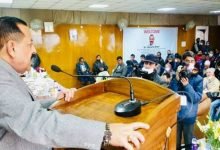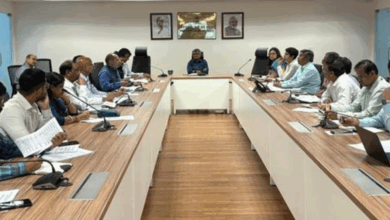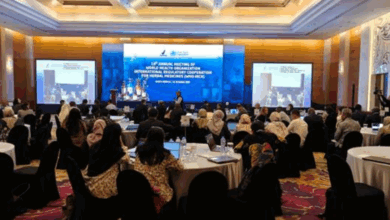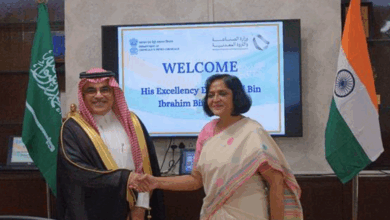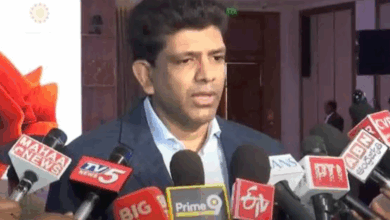Union Minister Jitendra Singh refers to an integrated strategy to achieve ‘TB Mukt Bharat’:
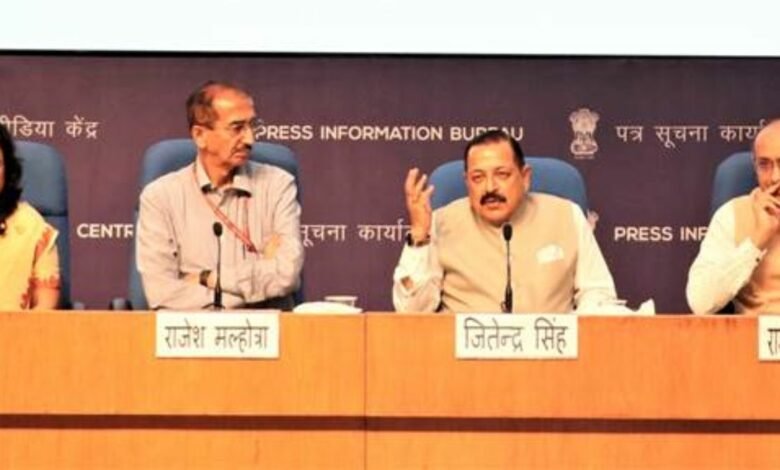
Says, the Department of Biotechnology is going to play an important part in the integrated holistic healthcare approach against the elimination of Tuberculosis, in keeping with Prime Minister Narendra Modi’s commitment to ‘TB Mukt Bharat’ by 2025.
Union Minister of State (Independent Charge) Science & Technology; Minister of State (Independent Charge) Earth Sciences; MoS PMO, Personnel, Public Grievances, Pensions, Atomic Energy and Space, Dr Jitendra Singh yesterday announced integrated strategy to achieve ‘TB Mukt Bharat’ and said, the Department of Biotechnology, which gave the world first DNA vaccine against Covid, is going to play an important part in this integrated holistic healthcare approach against the elimination of Tuberculosis, in keeping with Prime Minister Narendra Modi’s commitment of ‘TB Mukt Bharat’ by 2025.
Inspired by PM Narendra Modi’s clarion call at the One World TB summit at Varanasi on 24th March, the Minister declared the commencement of the pilot phase of the Indian Tuberculosis Genomic Surveillance Consortium (InTGS) with the successful completion of WGS of 182 strains of Mtb isolated from TB patients and development of a novel blood bag technology at DBT-InStem, Bengaluru. Dr Jitendra Singh was interacting with the Press on Bio-Next-Tech Innovations.
Presentations on new initiatives on improving Tuberculosis outcomes – a) AYUSH interventions to improve TB patient quality-of-life (QOL) b) Mapping drug resistance through genomics & artificial intelligence (AI) and novel blood bag technology to enhance quality and shelf life of stored blood were made.
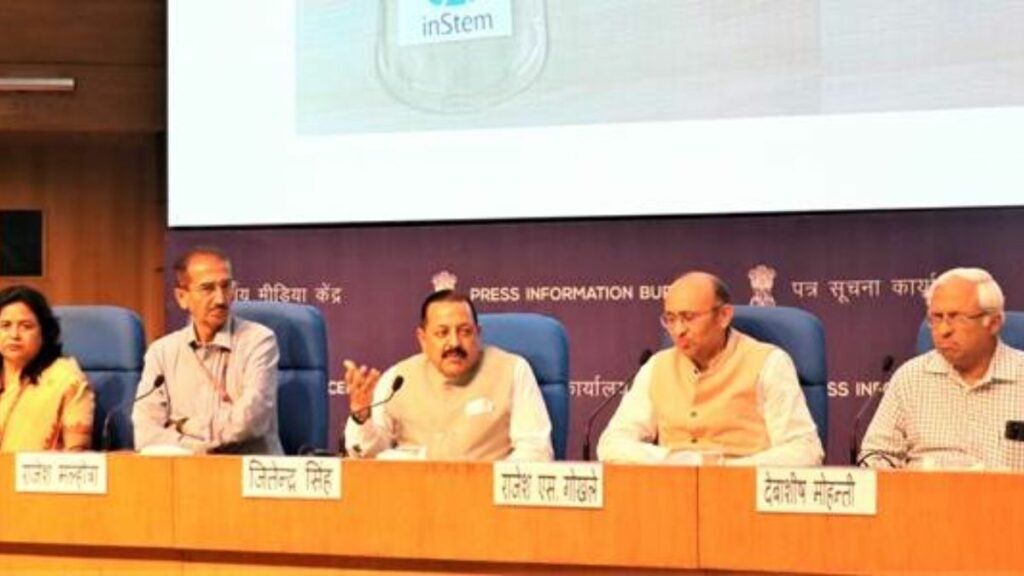
Dr. Jitendra Singh said that considering the deep societal and economic impact caused by Tuberculosis, the Govt. of India has placed a high priority on ‘TB Mukt Bharat’ by 2025 Biotechnology is going to play a huge part in the integrated holistic healthcare approach against the elimination of Tuberculosis. Data-Driven Research to Eradicate TB- “Dare2eraD TB” an umbrella program of the Department of Biotechnology (DBT) was launched on World TB Day in 2022. Indian Tuberculosis Genomic Surveillance Consortium (InTGS), one of the key components of the program, is a joint initiative between the Ministry of Science & Technology and the Ministry of Health & Family Welfare, led by the Department of Biotechnology.DBT, ICMR, CSIR and other R&D institutes are part of the consortium & aim to perform Whole Genome Sequencing (WGS) of 32500 strains of TB.
Dr. Rajesh S. Gokhale, Secretary, the Department of Biotechnology stated that InTGS is modelled on the lines of the highly successful Indian SARS-CoV-2 Genomics Consortium (INSACOG).
Dr Jitendra Singh said this will be the first pan- India initiative at such a scale to fully understand the biological characteristics of Mycobacterium tuberculosis (Mtb) and the effect of the mutations on transmission, treatment, and disease severity. He stated that this could lay the groundwork for use of modern technology such as WGS for TB diagnosis and surveillance in future. He mentioned that the Hon’ble Prime Minister had recently addressed the One World TB Summit at Varanasi on the occasion of World TB Day on 24th March 2023 where several initiatives were launched and the efforts of the Department align with the vision of ‘TB Mukt Bharat’ by 2025.
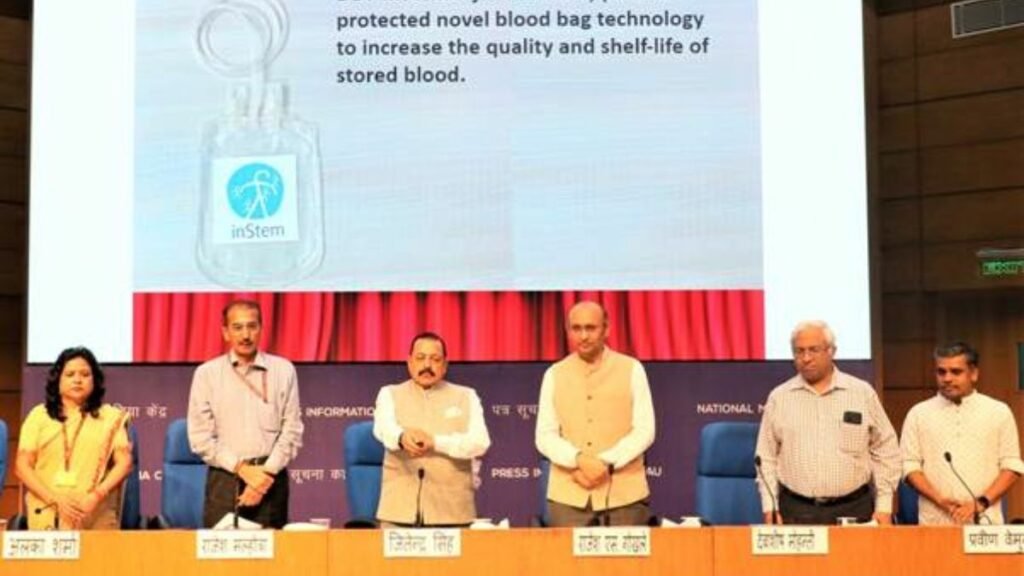
Dr Jitendra Singh mentioned that the Government’s focus has been on following an integrative approach for the different systems of medicine for the provision of holistic healthcare. He added that under an MoU signed between the Ministry of AYUSH and the Department of Biotechnology, conducting high-impact research studies on Ayurveda intervention as an adjuvant to Anti TB therapy (ATT) for improving quality of life, managing cachexia, bio-enhancing of ATT and hepato-protection is being planned.
Dr. Jitendra Singh remarked that the Government has also been strongly supporting indigenous R&D and innovation in the Healthcare sector. He announced the development of a novel Indian blood bag technology by scientists at the Institute for Stem Cell Science and Regenerative Medicine (DBT-inStem), an autonomous institute of the Department of Biotechnology. This is based on nanofibrous sheets that can capture damage-causing components from blood to increase the quality and shelf-life of stored blood and efforts are being made to commercialise this technology through a spin-off startup company, CaptureBio Private Limited.
Disclaimer: This is an official press release by pib.

